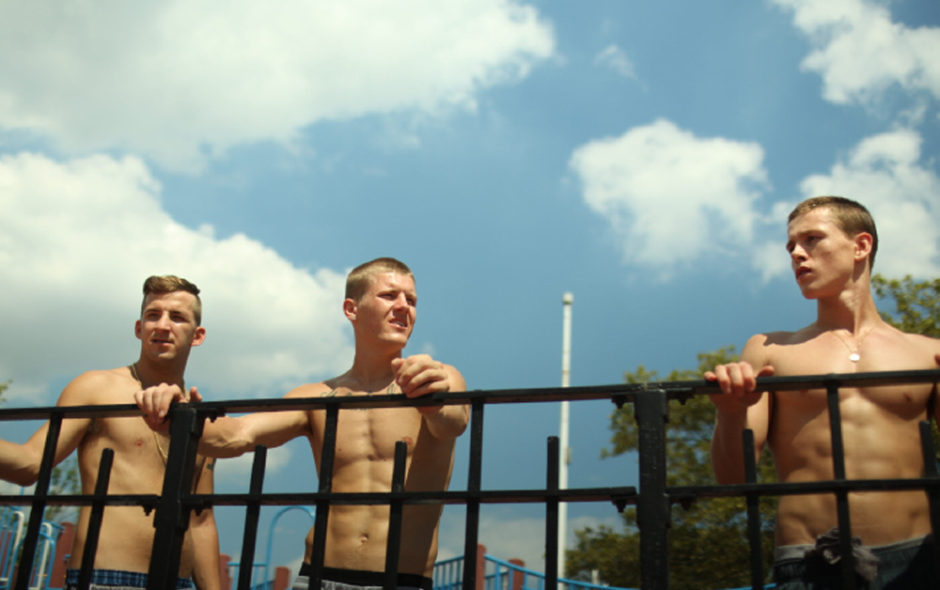Beach Rats follows Frankie (Harris Dickinson), an attractive, six-ab-chiseled young gay man in Brooklyn who refuses to acknowledge his sexual orientation. Carousing with his three bro buds, Frankie spends a majority of his time bored on the beach in Coney Island, vaping, dealing drugs and escaping from his claustrophobic home, where his cancer-stricken father receives palliative care and his fretful mother and younger sister only annoy him.
It’s not the most spectacular existence, but Frankie has the benefit of being gorgeous, and he quickly gets the attention of Simone (Madeline Weinstein), a smart, confident brunette with a slight Jersey nasality. “Do you think I’m pretty?” she asks him twice, to little reply. Frankie, under the pressure from his beach hoodlums to act as dude-bro straight as possible, plays along with her flirting, even at one point asking her point blank to be his girlfriend.
Nevertheless, he finds it nearly impossible to navigate hetero dating protocol (or sexual intimacy, for that matter). When Frankie repeats the question back to Simone while holding up her bra to his chest, his tone comes off as half-mocking, half-genuine. She’s offended either way, while he’s really asking the question rhetorically about himself.
The prowling men Frankie finds on gay webcam chatrooms believe he’s pretty; that is, when he’s not afraid of showing them his face. Frankie’s curiosity in seeking out like-minded men eventually leads to a real-life rendezvous, where his probing, curious hook-ups ask him what he’s attracted to — younger men, older dudes — and he openly admits that he’s not quite sure yet.
Beach Rats is a careful character study, and with Dickinson, American indie director Eliza Hittman has hit gold. The British actor, who pulls off an American accent and a Brooklyn “bro” attitude effortlessly, could not be more perfect for the part, particularly his big, beautiful, soul-searching eyes, which do much of the acting for him. There is much confusion in Frankie’s actions, but his eyes reveal a sad sensitivity that his macho persona cannot keep hidden.
Narratively, Beach Rats moves slowly, focusing on the tonal atmosphere of Coney Island. French cinematographer Hélène Louvart, known for her work with Wim Wenders and Agnes Varda, assists with cinematography shot on 16mm; the results are lustrous and simultaneously delicate, featuring lingering, lugubrious shots of summer party fireworks, moonlit beach waves and splashes of colour, lights and shadows falling on Frankie’s and other characters’ faces.
Sometimes, the focus on such shots becomes a bit too indulgent, like a scene at a vape bar involving smoke rings, but otherwise the film carries out its aesthetic authentically. It builds a world that’s as disorienting as it is beautiful, a coming-of-age atmosphere perfect for soul-searching, but one that, in the case of Frankie, holds little resolution.
Indeed, the film’s one shortcoming is a rather hastily written ending. The pesky task of resolution in a composition this character-focus cannot be ignored, and Beach Rats falls prey to a predictable homophobic bullying ambush that does little to extend or build upon Frankie’s psychological interior. Thankfully, the incident takes very little time, and the camera finishes with long takes of the beach, its enveloping waves a symbolic and chaotic chasm that metaphorically contains all of Frankie’s secrets.

